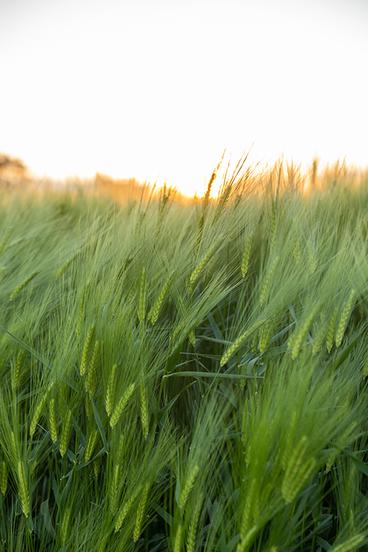
MN-Equinox is a six-row winter barley variety released by the University of Minnesota in 2021. MN-Equinox is facultative, meaning it can be planted in either the spring or fall, giving growers flexibility in planning their rotations and adapting to weather conditions.
Key characteristics
- Facultative, plant in spring or fall
- 6-row feed barley
- Good yields
Where to buy seed
Companies or individuals interested in producing and selling certified seed of MN-Equinox should contact the Minnesota Crop Improvement Association contact MCIA at 1-800-510-6242 or email [email protected] to obtain a license for seed production.
Additional details
MN-Equinox was launched with support from the UMN Forever Green Initiative (FGI), a CFANS research platform with leadership housed in the Department of Agronomy and Plant Genetics focused on developing winter annual and perennial crops and cropping systems that protect soil and water while also providing new economic opportunities for growers and industry.
“MN-Equinox is the result of several years of breeding efforts, focused on developing a winter-hardy barley variety for Minnesota and Upper Midwest growers that will protect the soil and also provide a harvestable yield for market,” states Kevin Smith, UMN barley breeder and research lead for winter barley. “We anticipate this is the first in a series of releases of improved winter barley varieties in the upcoming years. The initial market for MN-Equinox is for feed, but research is underway to assess and breed for potential food and beverage applications.”
Growers can purchase MN-Equinox seed through Albert Lea Seed.
“We are excited about MN-Equinox because we believe it gives farmers a new winter cereal that creates opportunities for them,” explains Mac Ehrhardt, president of Albert Lea Seed. “First of all, barley makes great feed, and if you can plant it in the fall you don’t have to worry about the narrow spring planting window. Second of all, winter barley matures very early, and may allow double cropping with soybeans.”
Smith agrees and notes that providing growers with more options for rotation planning and diversifying their market opportunities are key reasons why researchers continue to breed for improved winter barley varieties.
“Small grain production in Minnesota, and specifically, barley production, has declined precipitously since the ’70s. Yet, small grains can play an important role for growers to build soil health and reduce weed and pest pressure in their rotations.” Smith adds, “We are excited about the potential for winter barley in Minnesota and are pleased to help farmers realize that potential with MN-Equinox.”